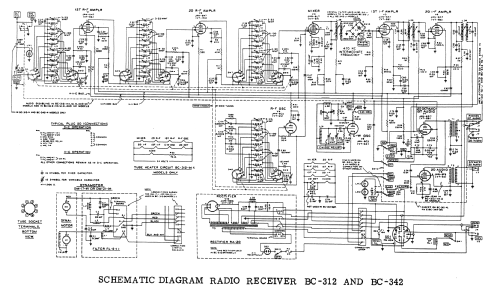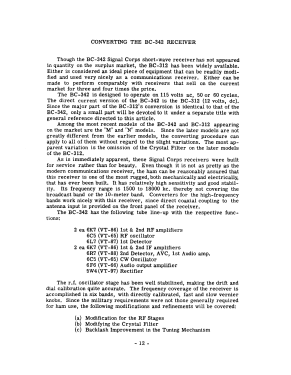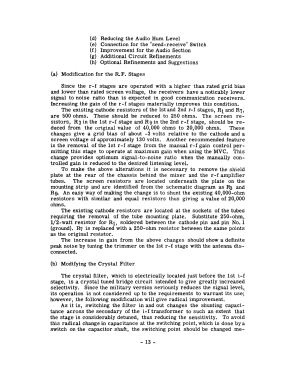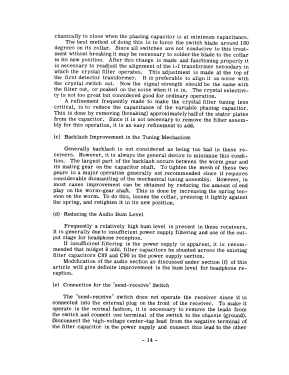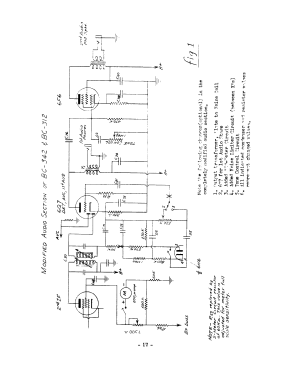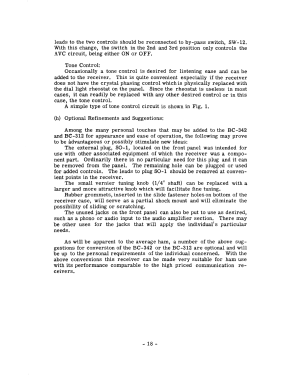- Country
- United States of America (USA)
- Manufacturer / Brand
- MILITARY U.S. (different makers for same model)
- Year
- 1936–1960
- Category
- Military Receiver
- Radiomuseum.org ID
- 198821
Click on the schematic thumbnail to request the schematic as a free document.
- Number of Tubes
- 9
- Main principle
- Superhet with RF-stage
- Wave bands
- Wave Bands given in the notes.
- Power type and voltage
- Storage and/or dry batteries / 12 - 14 Volt
- Loudspeaker
- - For headphones or amp.
- Material
- Metal case
- from Radiomuseum.org
- Model: BC-312-J - MILITARY U.S. different makers
- Shape
- Miscellaneous shapes - described under notes.
- Dimensions (WHD)
- 460 x 240 x 182 mm / 18.1 x 9.4 x 7.2 inch
- Notes
- The desk top transceiver BC-312-J has a Dynamotor DM-21, a quarz filter but not a squelch. It was designed at Signal Corps Laboratories Fort Monmouth, New Jersey and at least made by Farnsworth Television & Radio Corporation, Indiana. Frequency range is 1.5 - 18 MHz AM / CW.
There is a bi range of BC-312: BC-312-A, BC-312-C, BC-312-D, BC-312-E, BC-312-F, BC-312-G, BC-312-J, BC-312-HX, BC-312-NX, BC-312-L, BC-312-M and BC-312-N. BC-312-HX and BC-312-NX work with 24 - 28 V DC with Dynamotor DM-21CX, the others with 12 to 14 volts. - with Dynamotor DM-21. Each of those models have slight differences like Quarz-Filter, Noise balancing system, tube 12A6 instead of 6F6 etc. They were mainly used for airbore and army purposes, later often found in HAM radio stations. There was also a confirmed production run in France after WW2. See also the "General page for BC-312".
- Author
- Model page created by Ernst Erb. See "Data change" for further contributors.
- Other Models
-
Here you find 398 models, 350 with images and 210 with schematics for wireless sets etc. In French: TSF for Télégraphie sans fil.
All listed radios etc. from MILITARY U.S. (different makers for same model)
